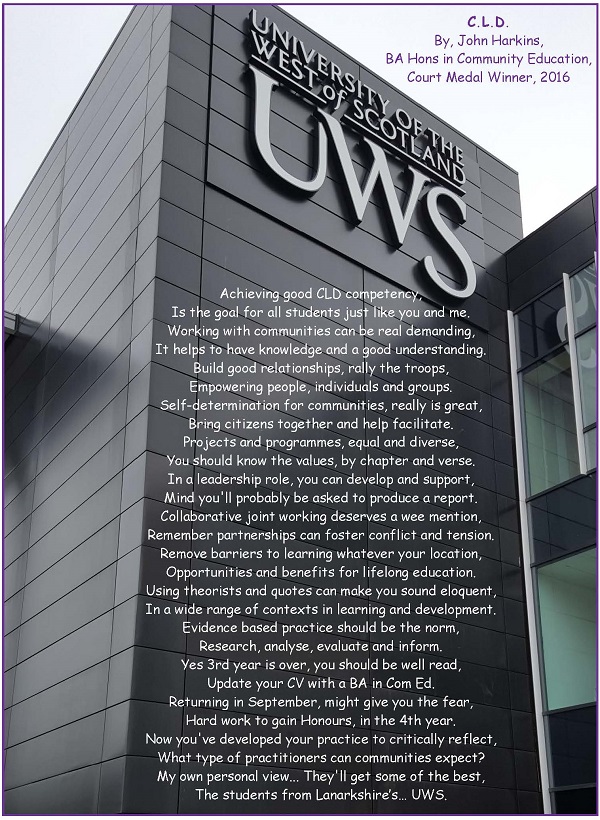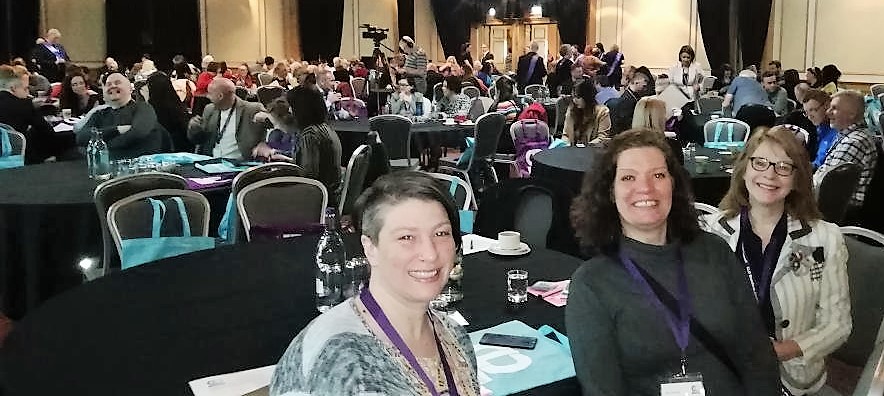CLDSC Member bulletin – 6 May 2020
Latest news and updates –
Scottish Government – Working together to respond to COVID-19
Last week, Mr Richard Lochhead MSP, Minister for Further Education, Higher Education and Science, wrote to all CLD organisations and employers with an update on the Scottish Government’s response to the COVID-19 crisis across the CLD, college and university sectors.
The letter included information about the high level leadership group that has been that has been established. Our chair, Alan Sherry OBE is a member of this group, representing the interests of the CLD sector. To inform this work, Alan also chairs the national CLD stakeholder reference group. The CLD Standards Council is represented on the group by Alan and Dr Marion Allison.
View the full letter from Mr Lochhead.
The CLD Response to COVID-19: report on survey results from wave 1 available
The CLD Standards Council asked practitioners to complete a short survey to gather information and examples on the CLD Response to COVID-19. The results from the first wave of the survey to the 19 April 2020 have been collected and you can find the survey report on the CLDSC website.
It highlights that “the workforce has been resilient, agile and quick to respond to young people, learners and community needs with practitioners being an essential link between people and Council, College, Community and Government, and delivering, enabling or co-ordinating services such as digital skills, health advice, utilities access, community resources, welfare / employment rights, governance, befriending, food / medicine distribution, mental health support, community cohesion, education and learning. Key to this role has been CLD practitioners’ access and knowledge of local communities and networks. Data showed that services are being directed towards at risk and / or vulnerable young people, families and community members with examples of people working with addictions, homeless, BAME, refugees / asylum seekers and disabled communities”. It recommends actions for CLD partnerships to support the essential role being undertaken by CLD practitioners.
….And please respond to Wave 2 of the survey
The survey is open to collect a second wave of information to build the picture over time. Whether you responded to wave 1 or not, please take the time to contribute to wave 2.
Please complete the survey online.
Please also pass this link on to any CLD colleagues. We really appreciate your support with this task at this busy time.
Could you be a CLD Buddy or PL Mentor?
Linked to proposals for informal CLD Meet Ups and the Virtual Meet Up referred to last week is an offer from some of our experienced/retired members to provide informal support to colleagues at an earlier stage in their CLD practice. They would become CLD Buddies available for a chat or meet-up to those looking to talk through a situation or a challenge and to bounce ideas off someone.
Running alongside this, the Professional Learning and Registration Committees have identified the need for mentors to provide guidance and, particularly for those who practice in more isolated contexts, to verify a member’s PL for re-registration purposes.
Are you that experienced, retired, approaching retirement CLDSC member who could be a CLD Buddy, PL Mentor or both? Please get in touch with us through contact@cldstandardscouncil.org.uk for more information.
College Development Network free webinars
CDN have partnered up with Jisc to deliver the Virtual Bridge sessions, a series of daily (Tuesday – Friday) webinars that bring together the EdTech-enthused communities in Scotland and Northern Ireland to share stories and expertise during these challenging times. The sessions cover a wide variety of topics and last half an hour. All of the webinars will be delivered online and the recordings will be made available afterwards so you can watch any you were unable to take part in.
View the Further information on the virtual bridge webinars and Programme of future sessions
The webinar recordings can be watched back on CDN’s YouTube channel.
Skills Development Scotland helpline and support
The PACE helpline 0800 917 8000 is being made available for people worried about the short-term impact of COVID-19 on their employment. This includes employees, those facing redundancy, under furlough, unemployed, pupils and parents.
There is new support including a jobs portal and links to free on line learning
Evaluating at a distance
We were bowled over by the response to “wave 1” of our survey that aims to bring together information on how CLD is meeting the COVID19 challenge. It was great that so many of you made the time to record and share what you are doing – hopefully even more of you will do this in wave 2 in May! Evaluation Support Scotland have developed resources for “evaluating at a distance”. The message is:
“In these tough times, remember to:
• Keep your evaluation simple
• Celebrate your success
• Record your learning“
It’s never been more important to record and evaluate, and to do it in a way that fits into and supports your work.
Best wishes
CLD Standards Council


